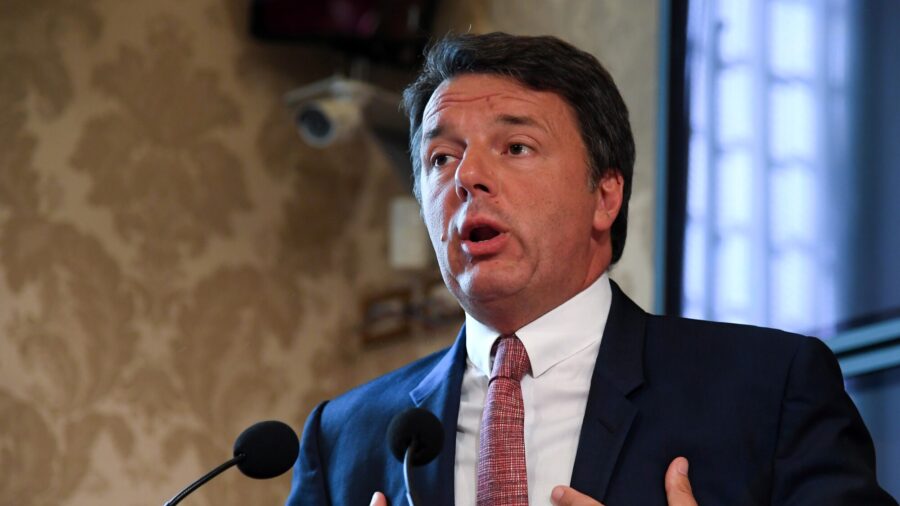ROME—Talks to revive Italy’s ruling coalition have failed, the small party that triggered the government crisis said on Tuesday, deepening the country’s political turmoil in the midst of the coronavirus pandemic.
Former premier Matteo Renzi pulled his Italia Viva party out of the coalition last month, accusing Prime Minister Giuseppe Conte of mishandling both the health crisis and the subsequent economic meltdown.
President Sergio Mattarella, the supreme arbiter in Italian politics, asked the head of the lower house of parliament, Roberto Fico, to mediate between the various parties.
However, Renzi said the negotiations had failed to patch up the differences on an array of issues, including health spending, education, justice, and infrastructure.
“We take into account the ‘nos’ of our colleagues in the ex-coalition,” Renzi said. “We thank Fico and rely (now) on the wisdom of the head of state.”
Fico was due to see Mattarella later on Tuesday to inform him of the breakdown.
The president might now have to launch a fresh round of consultations to try and see whether there is cross-party support for a government of technocrats, which would be tasked with tackling the coronavirus emergency and economic crisis.
Italy, the first European country to be hit by the virus, has seen more than 89,000 deaths since its outbreak emerged last February, the second-highest toll in Europe and the sixth highest in the world.
Italia Viva party has already indicated that it would like former European Central Bank chief Mario Draghi to become prime minister.
There is no guarantee that enough parties from either the current coalition or the opposition rightist bloc would sign up to such a scenario, which would effectively see them lose control of policy-making.
Without broad backing for an institutional administration, Mattarella would have no option but to install a caretaker government and hold national elections by June—some two years ahead of schedule.
By Angelo Amante and Crispian Balmer

